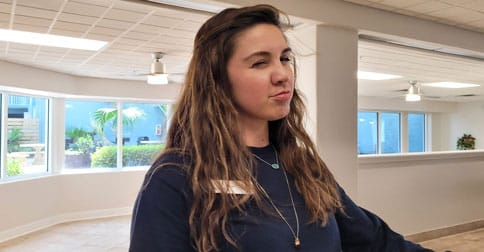CONTENTS
Panels can be live as part of a larger conference, or a one-off hosted by a bookstore or library. They can be online during a weekend writing course, or an hour of a fun topic organized by authors or publishers as a way to engage readers. Each event will be different, and each will have its own audience.
Please consider this a wide-ranging set of tools you can customize to each event as needed.
I’ve attempted here to create a useful list of advance work you can do to take some of the anxiety out of the experience, set realistic expectations, and manage the event itself. Some of these tips won’t work for you. Every event is different.
Ready? Let’s go!
Hit the YooToobs to See Previous Panels
If you’re going to a well-known event, it’s likely that there are recordings from previous years on the Web. Not only will you learn some cool things from the content, you can imagine yourself as one of those people being asked those questions. Watch how some of the already experienced folks manage their time, refer to notes, use humor, and generally interact.
You might also get the feel for who the audience is and what the goal is for that event. Reader entertainment? Writer education? Knowing that will shade the message you send out into the audience.
For example, there are years worth of panel videos available from the Golden Crown Literary Society. Some are recordings of live events and others are virtual events. Audience can be readers looking for fun, writers hoping for practical tips, or both. The Lesbian Review holds occasional online weekend events around a specific genre or theme.
If you’re like me, you’ve got a heaping load of imposter syndrome telling you that you could never be that poised and entertaining.
Guess what? Yes you can.
Everyone you’re watching started out just like you, and they learned just like you will. There will be panels where you are one of the rock stars in the room. In the small and ofttimes cozy lesbian fiction world, anyone at a panel is somebody else’s rock star. Own it, work it, be it, baby!
In An Ideal World
I want to say upfront that there is often a gap between an Ideal event and the Reality. It’s useful, however, to know what the various roles can be so you can do your part to create a successful experience regardless of what anyone else brings the panel table.
As participants, there are two roles we can have during a panel: moderator and panelist. Sometimes the moderator is both, more on that below.

So You’ve Been Asked to Be a Moderator
Here’s how I define the moderator’s job at a more formal event, like an in-person conference. Online events don’t have some of these issues, or there’s tech to make them easier. An online single hour fun panel also won’t have many of these issues. Regardless, even if moderating is something you’re not interested in, you should still know the range of what to expect from a moderator when you’re the panelist.
Before
- Confirms the desired outcome for the panel with the organizer. Is there a description already set? Can it be expanded or modified? Some organizations want a panel on X to give visibility to a topic and ask the moderator to build it from the ground up. Others take applications for panels, including description and panelists, and don’t weigh in on content and goals beyond accepting the panel for their event. Most are somewhere in between.
- Organizes the panelists beforehand. Informs them of the basics they need to know. Two ways to help panelists shine is providing possible questions in advance, or soliciting questions the panelists would like to answer.
- Does not send out questions or ask for bios or request essential input the night before the panel; three weeks or more is good practice. Two weeks is, for me, the minimum.
- Requests any information needed from panelists well in advance. Like, for example, input on the panel’s format and direction. And bios. As I said right above, don’t ask the day before. Not only are you likely not to hear back from everybody, the panelists now know how much advance work you put in. Look, everyone gets busy and stuff happens. Try your best to give people advance prep time because they’ll have a better experience – a good experience builds a collegial relationship that can foster the rest of your career. A bad experience … not so much.
- Alleviates panelist anxiety. I think this one is important if there are people on the panel who are first timers or unknown to the audience. I share what I know about the audience and do some cheerleading. I offer to help or find help with tech issues. Another thing I ask is who doesn’t mind being first or last, or who really doesn’t ever want to be first or last.
- Shares the organization’s marketing and talks up the panel and panelists about the event on social media.
- A few days in advance of the panel, sends a reminder to the panelists and cheerleads. Makes panelists comfortable and enthused to show up and do their thing. You may also find out that someone won’t be showing up and waited to tell you, or told someone else and that message didn’t get to you.
During
- Makes panelists and the audience as comfortable as they reasonably can. If the area near the door gets clogged, encourages people to come farther into the room. Asks people to spread out or move closer – whichever is likely to enhance the experience. If the panel is 90 minutes or more, puts in a break where people can stand up for a minute or two, get some water, or race out to the bathroom. Reads the room.
- Manages the logistics of the room. If there are 6 participants, are there 6 chairs? Are the lights on? Are the microphones on? Do any of the panelists need more space at the table?
- Before the formal start, does a sound check. Can the people in the back hear? Reminds the panelists to use their microphones if they forget. Looks for people in the back putting a hand to their ear as a signal that someone needs to speak up or lean closer to the mic. If online, suggests when someone’s camera, sound, or lighting could be adjusted for a better audience experience.
- Manages the time. That includes keeping an eye on the clock, cutting off a long audience question, and making sure there’s time for Q&A, if one has been promised.
- Makes sure panelists get equitable opportunities to contribute. This can include rotating who is called on first after a question or not moving on to a new question without asking the panelists who said nothing if they have anything to add. The job is to help everyone find their best way to be shiny without stealing all the light from everyone else.
- During Q&As, scans the whole room and takes note of raised hands. Repeats questions to be sure all heard. If online event, keeps track of questions in the chat and reads them out. It’s possible a tech for the event will help with this.
- Reads announcements the conference has given them, like mentioning the existence of a Code of Conduct, an update to the schedule, encouragement to attend a plenary session, bid on an auction, etc.
- There’s one Don’t I feel is universal: Unless the event itself identifies the moderator as also a panelist, a moderator should be speaking only a fraction of the time: introductions, questions, bit of banter.
After
- Thank your panelists by whatever means you’ve been using to be in touch beforehand.
- If you’re the social media type, post about the good time had by all. Thank the organizers publicly.
As I said above, not every step will be needed at every event. Not sure what’s expected of you as a moderator? Ask the person who asked you. You don’t have to/shouldn’t be inventing the wheel.

So You’ve Been Asked to Be a Panelist
Ideally, when you’re asked to be a panelist, an organizer has a title and description at hand so you can make an informed decision about whether that topic is in your wheelhouse. After you’ve agreed, you should get follow-up information (usually from the moderator) that gives you the names of the other panelists, the title, and the actual public description of the panel.
I look at it this way: I’m spending time (and possibly money) to be part of an event that was sold to the attendees in return for their time and often their money as well. The attendees deserve a good experience. I think I deserve a good experience too. When I agreed to be on a panel, I agreed to do my fair share to create those good experiences. Nobody should come out of it feeling anything less than good.
This is what “my fair share” means to me. Some of these steps also enhance my own joy.
- Prepare. Write down possible responses to the questions. Organize my thoughts.
- If the moderator asks for thoughts on how the panel could proceed or the content, speak up. It’s one way to shape the panel.
- When the moderator asks for my bio send in my freaking bio and don’t make them ask twice because that’s super annoying they’re already busy herding squirrels and it’s likely everyone else forgot to do it, I’m not gonna be that guy. (Sometimes I am, though, and I heartily apologize to anyone who ever had to ask for my bio twice.)
- Follow the guidelines the moderator gives me. Stick to the topic.
- At a minimum, share the organization’s marketing about the event on social media. Do my own posts encouraging people to attend.
- Familiarize myself with the other panelists and their work, and think of a question I might be able to ask if there is a lull during a Q&A portion.
- Be respectful and collaborative. If following-up on what someone else has said, start with a variation of “Yes, and…”
- Agree in good humor; disagree with grace.
- Presume that the other panelists are:
- Doing their best from a place of their own passion about the subject.
- Speaking their own truth, which is not about me.
- Not looking for me to “you coulda/woulda/shoulda” their journey in writing.
- Keep it fresh. Even if I’ve spoken on a topic many times before, freshen it up, e.g., add a new example. Next level and guaranteed to be fresh: Refer to the other panelists’ works that illustrate my point.
- Make sure I am comfortable in my seat, and sound check my mic, and always use the mic.
- Thank everyone for the experience, especially the volunteers, like the person who acted as a timekeeper, or is checking all the rooms before sessions to make sure they’re as needed, or helped you scoot a table further down to add a panelist chair – this is good in all of life. Always thank people, because kindness.
The more I stick to this game plan, the more I’m going to enjoy myself. I’ve taken control of what I reasonably could. When it’s over I’ll know I did my best in the circumstances.
You Can’t Control Everything
There is a definite give and take during the panel’s 60-90 minutes. It’s a mostly unscripted live performance. Some panels are lots of laughter and silliness. Others can get serious. Some topics are no brainers, like “Why Everybody Loves Romance.” I’ll still organize my thoughts, jot a few notes. Other topics will not be all laughs and rainbow sprinkles on top, like “Healing Trauma through Fiction.” That takes more time to prep and will have a different discussion tone.

Reality Can Be Very Different
In reality, many, many events in the sapphic fiction world are volunteer-run. For all sorts of reasons information might not be available for quite some time after I’ve agreed to participate. Delays and miscues, shifting schedules, revised lists of panelists – everything can be in flux for a very long time before the event. Sometimes an event host will want to include a panel on X, and will leave it completely up to the moderator to write a description and fill the seats.
It’s good to remember that none of the behind-the-scenes management at an event is about me. That is, until about two weeks ahead of the event. Then, a lack of organization begins to affect me. I agreed to do my fair share, and I need basic information to do that: names of the other participants, the final topic, etc. “Winging it” is not my preferred style.
The need for foreknowledge has become more acute in the past ten years. Why? One reason is that in today’s world, I would not want to turn up at a panel and discover another panelist is toxic to me or to my readers.This has not happened to me, but I know people…
Bottom Line in the Real World
Sometimes you have to white-knuckle your way through a poorly organized event being put on by someone(s) who is overwhelmed. They’re white-knuckling it too, and hoping for the best.
If you get the sinking feeling that the panel is going to be 100% Winging It, there are only two choices: Withdraw, or Show up and Do Your Best. Don’t dither until the day before to decide. Commit yourself to following through whatever you decide.
Moderating and a Panelist at the Same Time?
Now that you’ve seen my list of what I feel is involved with both roles, imagine doing both at the same time. I really don’t recommend it for a newbie. If you’ve never done anything like this before, start with being a panelist. Get some live experience.

It’s a Lot to Juggle
If the panel is a topic that could be a drain for you, moderating may simply be too much on top of that. For me, moderating taps management skills. Being a panelist taps knowledge skills. Both require performance skills. If that particular panel is going to deep dive into knowledge or needs a lot of management and organization I’d be leery of doing both.
It Can Definitely Work Though!
If the topic is light and in your wheelhouse, or the audience is one you know, doing both can work smoothly. It’s most common in the sapphic fiction world when the entire goal of the panel – especially online – is to entertain readers. The panelists may already know each other, or have done this kind of panel before. Or the topic is one that requires little to no prep. Moderating may be limited to introducing people and keeping an eye on the clock or chat – like being a host at a party. Be sure to make anyone new feel welcome and help all to have a good time.

Practice Like the Pro the Audience Already Thinks You Are
I make this point in my blog about Surviving that First Reading. For sure practice your opening comments. It lowers anxiety, creates a runway of energy for you to continue on, and will give you the air of authority that comes from knowing what you want to say.
If someone steals your brilliant point before you get to say it, proudly agree with them! Focus on your next most brilliant point. Or quip, “It’s all been said – I yield my time – I have nothing to add to what all these smart people have already said” or somesuch.
Your notes and prep are your tools. Having them ready to go means you can grab the one you need at the right moment or on the spot decide to leave a tool in the box for another time.
If you’ve been given some instructions about time from the moderator, e.g. “One question will be XYZ and everyone should take 3-4 minutes to answer that one,” then time your intended answer. Every single time I open up my stopwatch app to check how long I’m running, I find that I run as much as 50% longer than I thought I would. Plus, with the pressure of the stopwatch running, I hear much more clearly anything I say that is getting in the way of making my point.
Nearly Everybody Hates This, Including Me
If you have never done so before, record yourself with camera and microphone and watch it all the way through. I encourage anyone planning to make a public appearance to do this exercise. If you’re like me, you’ll find room for improvement. For example, I’ve cut down on my fidgeting by 90% and learned better breathing techniques to combat my squirrel voice.

Make Yourself Comfortable
This is the same advice that I give for author readings. Do some self care before you go into performance mode. Whatever you do to calm yourself and feel physically awake and strong, allow time and space for it. For example, I avoid a big meal before a public appearance. I arrive in the area early so I can walk off any fluster getting there may have caused. I get to meeting rooms early to have a chance to meet panelists I don’t know, get hugs from old friends … AND … figure out the microphone and seating.
If the panel is online, I set up camera and room 15-30 minutes early, then check lighting and sound with a quick video. Time of day affects my energy level and the ambient light. It reduces my anxiety to know it’s all ready to go and I’m “up” for it. As someone who wears glasses, lighting is vexing, and it takes fussing every single time.
Introduce Yourself if the Moderator Doesn’t
Be prepared to quickly introduce yourself if the moderator doesn’t. Pro-tip: If the moderator didn’t ask for your bio, they’re probably not going to introduce you. Get out that elevator speech. You should have it memorized.

Use. The. Microphone.
If you’re at a live event that provides a microphone, use it, and use it properly.
- Sound check. Find out just how close your lips need to be to the mic to engage it. It can be anywhere between 1 to 6 inches.
- When you want to speak, lean in to that distance every single time. Did I mention you should always lean in to that distance every single time?
- Don’t take a poll of the room about using the mic! Even if it seems like everyone says “okay” to not using it, how do you know there isn’t someone who really needs you to use the mic and is tired of having to ask when it appears everyone else has terrific hearing. Don’t create this dynamic. Use. The. Mic.
- Voice fatigue is real. Everyone might be able to hear you at the beginning of the hour, but by 30 minutes in, unless you’re a trained voice pro, your volume will drop or you will forget just how much you need to project. Use. The. Mic.
- Know why trained voice pros always use the mic if it’s available? It saves their voice for the next event. Be like the trained voice pros. Use. The. Mic.
- USE. THE. MIC. That, by the way, was in my Mom Voice.
Face. The. Audience.
This is similar to using the mic, in that when you are speaking and not facing someone there are people who won’t follow you as well, especially if their hearing is challenged. It differs in that most of us humans derive additional meaning and context from facial expressions, especially cues for sarcasm, irony, or “I’m truly joking / don’t believe what I just said.”
Online
For an online event, the audience is on the other side of the camera. Personally, I’m intimidated by camera lenses staring at me. One trick I’ve learned is to back away a little bit so I have room to use my hands. It also allows me to lean in when I’m making a point I want to underscore or add a pop to my volume for a quick bit of snark.
As much as possible look at or just to one side of the camera (as if a friend is sitting right there) while you’re speaking. Try not to look at the images of the other participants on the screen even if you’re addressing yourself directly to them. Nobody else knows what you’re looking at.
Also, the side of your face may not be your best feature, just sayin’.
In Person
This can get tricky. In many room set ups, the moderator is to your hard left or right. When they are speaking to you – to ask a question, for example – it’s natural to look at them. Once the question is done, nod that you’ve got it, and then face the audience. You might glance at the moderator or other panelists, but your primary focus is members of the audience.
Plus, know what happens if you address yourself to the moderator? You’re not in the right position for the microphone! The audience is experiencing Lena Lamont’s sound fail from Singin’ in the Rain.
Remember, You Are Making Love to the Bush!
I hope that all this information helps you prepare for your first panel experience in ways that will allow you shine and avoid the flop sweats and imposter syndrome self-doubts. Use the ideas that work for you.
Truth: I’ve had a lot of years to work on these skills and I still do it all less than perfectly. But I’ve got a good track record that each time I do it, I get a little better. You will too.

